
Aomori is a popular sightseeing destination located in the northernmost part of Japan's main island of Honshu. Famous for its apples and seafood dishes, Aomori is a fun place to visit, especially with family.
There are also many Aomori festivals held in various places that attract crowds of tourists every year, including one of Tohoku’s three biggest summer festivals: the Aomori Nebuta Festival.
Aomori is also home to beautiful, seasonal landscapes, including the Shirakami-Sanchi Mountains, which have been designated as a World Natural Heritage Site; Oirase, designated as a national park; and nature-abundant places such as Towada-Hachimantai National Park and the Hakkoda Mountains.
Try the cuisine, experience the events, and enjoy the sightseeing in Aomori - here are some highlights for your perfect trip!
Main image: Boophuket / Shutterstock.com
- Table of Contents
About Aomori Prefecture

The terrain of Aomori is divided in the center by the 1,000-meter class Hakkoda Mountains, and is also broadly divided by the Tsugaru Region to the west, and the Nanbu Region to the east.
Each area has different features, including culture and cuisine. Aomori Prefecture is the 8th largest prefecture out of all 47; therefore, it is impossible to see all the sights in a single day.
Because of its size, renting a car is one of the best ways of getting around, however, if that is not possible, or for shorter trips, local lines and buses are also available. There are plenty of unique attractions, cultures, and customs that you can find all around the region, even locally.
Aomori Sightseeing: Tsugaru Region
With a spotlight attraction of Hirosaki Castle, the Tsugaru area has many eclectic streets with an east-meets-west vibe, where both Western-style buildings and Japanese temples coexist.
There are power spots such as the Iwakiyama Shrine and sightseeing spots such as the Tappi Misaki Cape, which lies at the northernmost tip of the Tsugaru Peninsula. “Rice paddy art” is another popular tourist attraction in the countryside villages, produced using different colored rice.
1. Shirakami-Sanchi

The Shirakami-Sanchi Mountains are known for having the world's largest old-growth beech forest, and along with Yakushima, were the first sites to be registered as World Natural Heritage Sites in Japan.
This vast mountain forest spans the border of Akita Prefecture, and is home to attractions such as Aoike Pond and Anmon-no-Taki Falls.
The Shirakami-Sanchi Visitor Center has many guides and informational sources available that explain the surrounding nature as well as the origins and attractions of Shirakami-Sanchi in an easy-to-understand manner.
-
Shirakami Sanchi Visitor Center白神ビジターセンター
- Address Kanda-61-1, Tashiro, Nishimeya, Nakatsugaru-gun, Aomori
- Phone Number 0172-85-2810
・Hours: Apr-Oct: 8:30 AM - 5 PM; Nov-Mar: 9 AM - 4:30 PM (Last entry is 30 min before closing)
・Admission: Free (Fee required for video viewing)
・Closed: Apr-Dec, every second Tues (following day in the event of public holiday); August, every fourth Tues; Jan through Mar, every Mon & Thurs (following day if public holiday); New Years Holidays, 12/29~1/3
2. Aomori Museum of Art

The white building of the Aomori Prefectural Museum of Art is a unique structure inspired by the Sannai Maruyama Site, which is the largest of the Jomon ruins in Japan and lies directly adjacent to it.
You can appreciate the works of artists from Aomori, such as printmaker Shiko Munakata and contemporary artist Yoshitomo Nara. There are also plenty of things to do here, including special exhibitions, events, and cafes.
-

-
Address
Yasuta, Aomori-shi, Aomori character Konno 185, 038-0021
View Map -
Nearest Station
Shin-aomori Station (Ou Line / Tohoku Shinkansen / Hokkaido Shinkansen)
20 minutes by bus
- Phone Number 017-783-3000
-
Address
Yasuta, Aomori-shi, Aomori character Konno 185, 038-0021
3. Nebuta Museum WA RASSE

This is a place where you can enjoy Tsugaru's summer festival, Neputa (Nebuta), all year round. Even if you can't make it in the summer, you can still experience and learn about it.
-
Nebuta Museum WARASSEねぶたの家 ワ・ラッセ
- Address 1-1-1 Yasukata, Aomori
- Phone Number 017-752-1311
・Hours: (May-August) 9 AM - 7 PM; (September-April) 9 AM - 6 PM
・Admission: Adults: 600 yen; High School: 450 yen; Children (Middle/Elementary): 250 yen
・Closed: 8/9, 8/10, 12/31, 1/1
4. Hirosaki Castle and Hirosaki Park

Hirosaki Castle is the only castle in Tohoku that still retains its tower from the Edo period. After changing the name of the vast castle grounds to Hirosaki Park, this spot became one of the most popular places for people to enjoy cherry blossom viewing. Tourists from all over the world come and see the 2,600 cherry blossoms in full bloom and the rain of petals falling into the moat.
The park is also worth visiting in other seasons: summer for its beautiful greenery, fall for its bright autumn leaves, and winter for its lanterns and snow sculptures. Hirosaki Castle represents Aomori Prefecture and shows a different beauty every time you visit.
-

-
Address
1, Shimoshiroganecho, Hirosaki-shi, Aomori, 036-8256
View Map -
Nearest Station
Chuohirosaki Station (Konan Tetsudo-owani Line)
15 minutes by car
- Phone Number 0172-33-8739
-
Address
1, Shimoshiroganecho, Hirosaki-shi, Aomori, 036-8256
Aomori Sightseeing: Nanbu Region
Aomori's Nanbu Region, which faces the Pacific Ocean, is easily accessible via the Shinkansen. There are major cities such as Hachinohe and Towada, as well as Misawa, which is home to a US military base, and Takko, a town known as the top producer of garlic.
Attractions on the Shimokita Peninsula, located in the north, include Mount Osore, known as one of the Three Holy Mountains of Japan, the mysterious rock formations of Hotoke-ga-ura, and Kandachime horses, animals that are known for their ability to withstand severe winters.
1. HASSHOKU CENTER
Hachinohe, once a town that flourished as a fishing port, is home to the Tatehana Wharf Morning Market, said to be the largest such market in Japan, and held on Sundays from March to December.
Here you can find not only seafood but local and gourmet ingredients as well. Hasshoku Center is a popular place for tourists where they can taste such gourmet dishes for themselves, all year round.
-
HASSHOKU CENTER八食センター
- Address Kansai-22-2, Kawaragi, Hachinohe-shi, Aomori
- Phone Number 0178-28-9311
・Hours: 9 AM - 6 PM (*O-Bon Festival and New Year’s Holiday times may vary)
・Admission: Free
・Closed: Wednesdays
2. Towada Art Center
The Towada Museum of Contemporary Art was established in Towada as part of an art project that involved the entire city. It is a hot spot where you can see various contemporary art works on display in the separate “White Cube” exhibition room.
3. Oirase Gorge

The natural landscape of national parks, such as the Oirase Gorge and Lake Towada, are beautiful sceneries created by nature with various expressions that change like moods with the coming of each season.
The national road along the mountain stream is a great point for trekking, where you can enjoy a peaceful walk surrounded by nature and listening to the babbling of the unique waterfalls.
At Oirase Keiryukan Hall (the Oirase Stream Museum), you can learn about the history and nature of the park and where to find walking maps. You can also borrow a rental cycle to ride along the mountain stream.
-

-
Address
Okuse, Towada-shi, Aomori, 034-0301
View Map -
Nearest Station
Hachinohe Station (Hachinohe Line / Tohoku Shinkansen / Hokkaido Shinkansen / Aoimori Tetsudo)
90 minutes by bus
- Phone Number 0176-75-2425
-
Address
Okuse, Towada-shi, Aomori, 034-0301
4. Sannai Maruyama Ruins

The Sannai Maruyama Site in Aomori City is one of the largest Jomon settlements in Japan, where people lived for a long period of time from the early to middle Jomon period (5,900 to 4,200 years ago).
In addition to the 2,000 clay figurines unearthed at the 42-hectare site, the largest number in Japan, there are also many artifacts such as wood products, lacquerware, jade, and obsidian. Inside the Sanmaru Museum, which displays about 1,700 artifacts, you can find various exhibits detailing life and culture in the Jomon period, plus a museum shop with fun Jomon merch, making it a place where Jomon fans can spend a whole day and never get bored.
-

-
Address
305 Sannai Maruyama, Aomori City, Aomori Prefecture, 038-0031
View Map -
Nearest Station
Shin-aomori Station (Ou Line / Tohoku Shinkansen / Hokkaido Shinkansen)
15 minutes by bus
- Phone Number 017-766-8282
-
Address
305 Sannai Maruyama, Aomori City, Aomori Prefecture, 038-0031
5. Hakkoda Ropeway

The Hakkoda ropeway is located in the northern part of Towada-Hachimantai National Park and it overlooks the Hakkoda Mountain Range. With a large gondola that can accommodate about 100 people at a time, you can enjoy an aerial climb to the summit park station, which will take about 10 minutes each way.
The observation deck at Sancho Koen station is a popular viewing spot from which you can enjoy a 360-degree panoramic view of Hakkoda (wonderful in every season).
We also recommend the nature trail where you can walk with ease in the marsh, admiring plants in summer, autumn leaves in fall, magnificent mountains, and rime on trees in winter.
-
Hakkoda Ropeway八甲田ロープウェー
- Address 1-12, Aza-Sansuizawa, Arakawa, Aomori-shi, Aomori 030-0188, Japan
-
Nearest Station
Access: By JR bus from JR Aomori Station, get off at Hakkoda Ropeway Station. By car, get off at the Aomori Chuo IC on the Aomori Expressway and drive about 19 km.
- Phone Number 017-738-0343
・Ropeway hours: 9 AM - 4:20 PM (March to early November), 9 AM - 3:40 PM (mid-November to February)
・Ropeway fare: Adults (junior high school students and older): 1,250 yen one way (2,000 yen round trip), Elementary school students: 450 yen one way (700 yen round trip), Preschool children free of charge.
・Closed: Open all year round (may be closed in case of strong winds or abnormal weather) (*Working hours may be closed in early November for inspection and maintenance.)
6. Asamushi Aquarium

Asamushi Aquarium is the northernmost aquarium in Honshu and it exhibits 10,000 aquatic creatures of about 300 species. The park focuses on animals that live in the Aomori Prefecture, which is blessed with nature. In the tunnel aquarium that reproduces the Sea of Mutsu Bay, you can see scallops, sea squirts, and other animals from up close.
One of the most popular shows is the dolphin performance, held all year round in the indoor pool, and which displays dolphins performing acrobatic feats accompanied by the traditional music played on Tsugaru shamisen and Nebuta hayashi.
We also recommend Kaijukan, where you can see penguins and seals from up close, and the Pet corner, where you can touch and observe sea urchins, starfish, and more.
-
Asamushi Aquarium浅虫水族館
- Address 1-25 Asamushi Babayama, Oomori City, Aomori Prefecture 039-3501
-
Nearest Station
10 minutes walking from Aoimori Railway Asamushi Onsen Station
- Phone Number 017-752-3377
・Hours: 9 AM - 5 PM (admission until 4:30 PM)
・Admission: 1,030 general admission/high school students; 510yen for junior high school students; free for children (tax included)
・Closed: Open daily
What are the highlights of Aomori in each season?
In Aomori Prefecture, where every season has its unique features, there are many things that can only be experienced at a certain time of the year. This is one of the charms of Aomori Prefecture.
There are many spots to admire cherry blossoms in spring, especially in Hirosaki Park, one of the most popular spots in Japan, visited by as many as 2 million tourists every year.
In the summer, traditional festivals like Nebuta Matsuri and Sansha Taisai take place in many areas of the prefecture. There are also plenty of resorts, like those by Oirase Gorge and Lake Towada.
In fall, Tsutanuma, Hirosaki Park, Hakkoda Mountains, Okuirase, and many other places are colored with bright red and yellow leaves. This is also the season of the sweet, crispy red apples of the region.
In winter, there are many activities to experience, like skiing and snowboarding on the finest powder snow, the so-called snow monsters in Hakkora, where the rime on trees creates incredible natural sculptures, and the stove train a warm touring train.
You can also enjoy the Sukayu Onsen, a hot spring located in a deep snowy area, or the Hirosaki Castle Snow Lantern Festival, as well as the Lake Towada Light Winter Story.

Many things can only be experienced during a short period of time, so be sure to check the time of the events and the seasons before visiting.
What to Eat in Aomori? 6 Recommended Local Specialties
Aomori is blessed with three oceans and a thriving agricultural area abundant in all kinds of ingredients such as seafood and other foods grown in the mountains. A unique food culture based on the local climate, history, and culture has developed here, and traditional dishes made using regional specialties and locally ingredients are still enjoyed.
1. Apples

October to December is the peak season for harvesting apples, which are sold all throughout Aomori Prefecture via direct sales and markets.
There are more than 50 varieties of apples grown in Aomori Prefecture, each with different levels of sweet-and-sourness, which are all interesting to eat and compare.
Apple pie, apple juice, and apple ciders also vary in taste depending on the types of apples used, as well as the production method. You can even enjoy fun activities such as apple picking.
2. Nokke Bowl

The Nokke bowl (Nokke-don) is a dish of fresh seafood directly from the market on top of hot rice. If you visit the nokke-don Information Center in the city of Aomori, you can choose your favorite ingredients among 30 choices of tuna, scallops, sea urchin and shrimp, and make the best bowl for you.
You can enjoy this fun and delicious experience only here.
-
Nokke-don Information Centerのっけ丼案内所
- Address 1-11-16, Furukawa, Aomori, 030-0862
- Phone Number 017-763-0085
・Open: 7 AM - 4 PM
・Closed: Tuesdays
3. Tuna

The tuna of the frigid strait of Aomori Prefecture is meaty and abundantly fat. In particular, the Oma Tuna is a world-famous kind, and at the beginning of the new year, it has been sold in fish-market auctions for amounts up to 300-million yen.
At Tsurukameya Shokudo, a restaurant in Aomori City, you can enjoy tuna bowls all year round, but also seasonal specialties depending on the time of the year.
-
Tsurukameya Shokudo鶴亀屋食堂
- Address 293-14 Hotarudani, Asamushi, Aomori, 029-3501
-
Nearest Station
5 minutes walking from Aoimori Railway Asamushi Onsen Station
- Phone Number 017-752-3385
・Open: 11 AM - 2:30 PM
・Closed: Open daily
4. Hachinohe Senbei Jiru

Hachinohe Senbei-jiru is a local soup dish from the Hachinohe Region made with boiled Nanbu-senbei (rice crackers). It is homemade, so the seasoning and cooking methods may vary slightly, and there are various types of senbei used as well. With almost 200 shops in Hachinohe City, it can also be fun to compare the different styles.
5. Bara-yaki: Grilled beef belly

Grilled beef belly is a local traditional dish of Towada City. Beef ribs and sliced onions are finished with a sweet and spicy sauce. It’s a simple plate prepared by frying the ingredients on an iron plate, but the umami of the beef and the sweetness of the onions, paired with the sweet and spicy sauce go perfectly together, creating a flavorful dish. This dish is served in about 80 restaurants in Towada alone, alongside a number of ways to enjoy sukiyaki.
6. Tsuyu Yakisoba

Tsuyu Yakisoba is another traditional dish of Aomori Prefecture that you should try at least once, prepared by adding soup to yakisoba. In Kuroishi City, the birthplace of this soul food, there are about 70 restaurants that serve it, and they have even attracted the attention of the national media. At first glance, it may seem odd to add soup to yakisoba, but the noodles espouse the soup perfectly.
You will find many different kinds of soups from soy sauce to pork-bone depending on the store, so try as many as you can.
Souvenir Shopping Around Aomori Station

The area around Aomori Station is a tourist hub and a key point for transportation around the prefecture. It is also a great spot for souvenir shopping. There are two popular tourist spots in the area, including the streets where old-fashioned markets still remain from the days of old, and the Aomori seaside. During the Aomori Nebuta season, you can also see the Nebuta huts that house Nebuta floats that are used for this exciting festival.
1. Aomori Tourist Information Center ASPAM: Great for Standard Souvenirs
You can find all kids of standard Aomori souvenirs at the Aomori Tourism and Product Center ASPAM, a building known for its triangular shape. Popular items include traditional handicrafts such as Tsugaru-nuri, lacquerware items which are made using a technique of applying multiple layers of lacquer, and traditional needlework crafts that originated in the sow country, such as Tsugaru kogin-sashi and Nanbu hishi-sashi.
-

-
Address
1-1-40 Yasukata, Aomori City, Aomori Prefecture, 030-0803
View Map -
Nearest Station
Aomori Station (Ou Line / Tsugaru Line / Aoimori Tetsudo)
8 minutes on foot
- Phone Number 017-735-5311
-
Address
1-1-40 Yasukata, Aomori City, Aomori Prefecture, 030-0803
2. A-Factory: Rare and Unique Souvenirs
You can find a lot of crafts and souvenirs unique to Aomori at A-Factory, located right next to Aomori Station on the seaside. There is also a restaurant where you can enjoy dishes and sweets made with local ingredients unique to the prefecture.
-
A-FactoryA-Factory
- Address 1-4-2 Yanakawa, Aomori
- Phone Number 017-752-1890
・Hours: Shops, 10 AM - 7 PM; Restaurant: 11 AM - 6 PM (last order at 5:30 PM)
・Admission: Free
Sightseeing in Aomori Prefecture
Aomori Prefecture has many attractions, but it’s very vast (the 8th largest in the country), so, without some preliminary research, you will spend more time moving from one spot to the other than you will actually be sightseeing.
The best way to go about it, is to choose the best means of transportation and lodging, based on the places you want to visit.
・How to get around efficiently
First of all, select the sightseeing spots you want to visit, categorizing them by area (like Tsugaru or the southern area). Then make an itinerary that will allow you to visit places closest to your hotel, and then moving farther, so you won’t have to backtrack to see everything. In addition, make sure to check in advance the timetables of buses and trains for efficient transfers and less waiting time.
・Transportation
There are two main means of transportation to Aomori Prefecture: shinkansen and plane. The shinkansen stops near sightseeing areas like Hachinohe Station and Shin-Aomori Station, and Aomori Airport is located between Hirosaki City and Aomori City, making it an ideal base for sightseeing in the Tsugaru area.
・How long to stay in Aomori
If you’re heading from Tokyo or Osaka to Aomori, you’ll need at least two nights, as it takes a lot of time just to get there by train or plane. If you want to visit a lot of areas, or try a lot of things and participate in many events, adjust your stay accordingly.
・Accommodation in Aomori
It varies depending on the area you want to visit, but we recommend the three major cities of Hirosaki, Aomori, and Hachinoe, because they have many hotels and are easily accessible. If you want to access all areas from an even distance, it’s best to use the area around Aomori Station.
In other areas, there may be fewer points of access, but there are a lot of inns and hot springs scattered around the prefecture, alongside local dishes and a number of sights. That may also be a great option depending on your preferences.
Some hotel recommendations are listed below.
-
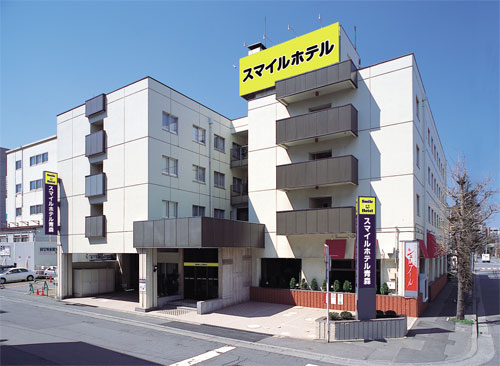 Smile Hotel Aomoriスマイルホテル青森
Smile Hotel Aomoriスマイルホテル青森- Address 2-4-7 Honcho, Aomori-shi, Aomori View Map
- Original source: Rakuten Travel
-
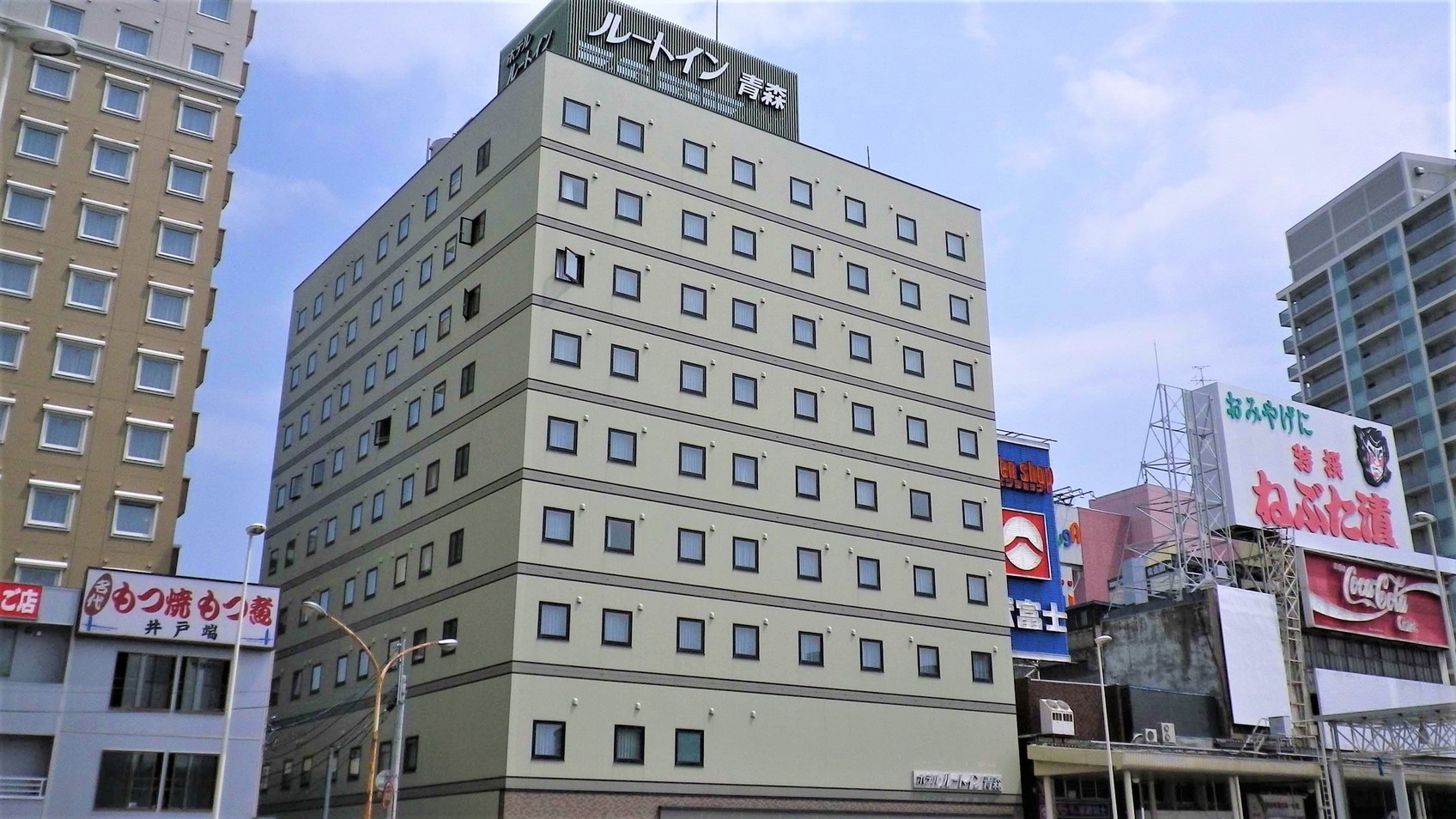 Hotel Route-Inn Aomori Ekimaeホテルルートイン青森駅前
Hotel Route-Inn Aomori Ekimaeホテルルートイン青森駅前- Address 1-1-24 Shinmachi, Aomori-shi, Aomori View Map
- Original source: Rakuten Travel
・Seasons
Spring and fall offer especially beautiful scenery with cherry blossoms and autumn leaves. Summer is when you can enjoy traditional festivals and events like Nebuta and Neputa, and winter is the time for activities like skiing and snowboarding. Since Aomori has four very different seasons, make sure you prepare for the cold in winter.

Aomori Prefecture offers many sights that can only be enjoyed in specific seasons. There are attractions that you will want to experience over and over again, superb views, soul food, events, and plenty of activities. When you visit Aomori from overseas, make sure to check the transportation and accommodations to make your trip unforgettable and fulfilling.
Text by: Ken Kudo (edits by: Tsubasa Shimoda)
*Prices and options mentioned are subject to change.
*Unless stated otherwise, all prices include tax.
Popular Tours & Activitiess
Recommended places for you
-

Akiu Onsen
Hot Springs (Onsen) & Bath Houses (Sento)
Sendai And Matsushima
-

Sendai Tanabata Festival
Japanese Festivals (Matsuri)
Sendai And Matsushima
-
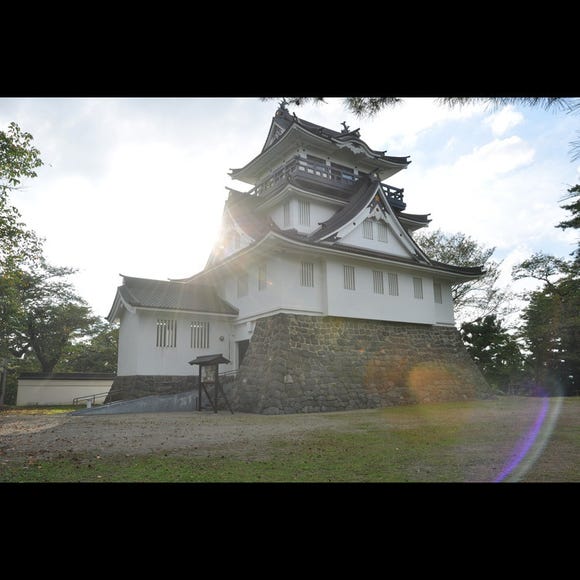
Yokote Park
Parks
Surrounding Areas Of Akita
-

Sado Gold Mine
Winter
Niigata And Sado
-
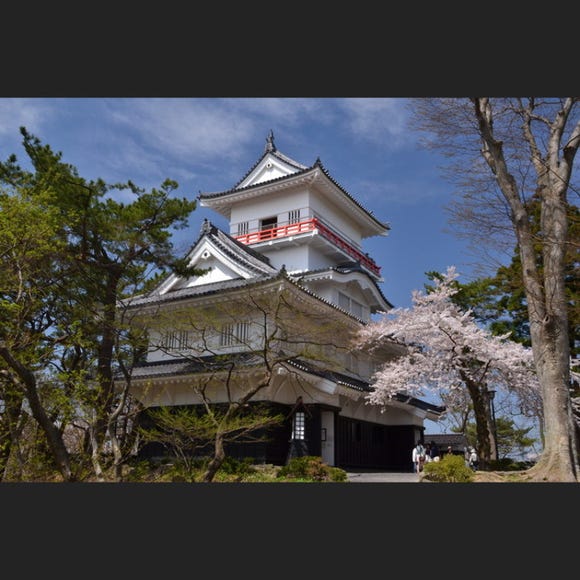
Senshu Park
Parks
Surrounding Areas Of Akita
-
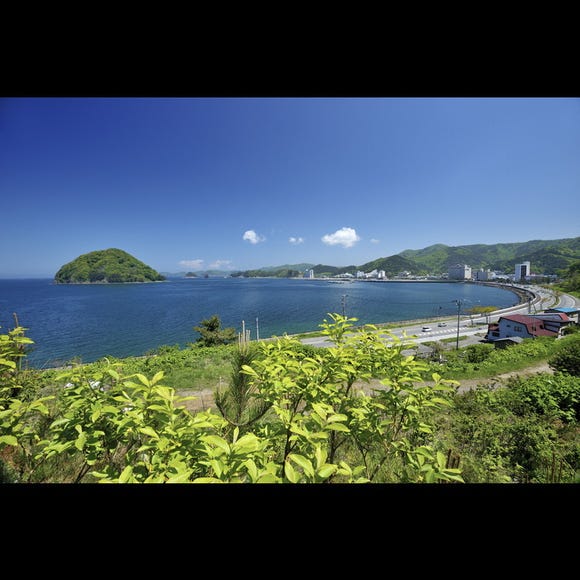
Asamushi Onsen
Hot Springs (Onsen) & Bath Houses (Sento)
Aomori, Hirosaki And Hachinohe
-
Ad

Discover Kanazawa: History, Culture, and How to Get Around with Ease
-

Shopping in Akita: 11 Must-Buy Souvenirs & Where to Shop Near the Station and Airport
by: ShiroKu inc.
-

Niigata Sake no Jin 2026: Guide to Japan's Most Legendary Sake Weekend
-
Ad

Explore Samurai City Aizu-Wakamatsu: Your Full Guide to History, Nature, and Culture
-

Aomori's Quiet Side in Autumn: 5 Scenic Spots in Hachinohe According to a Local
by: Marco Blasco
-
Ad

Start Your Journey from Yamagata Station: Explore Four Seasons of History, Hot Springs, and Festivals
-

Oga Aquarium GAO Guide: Fish, Polar Bears and...Godzilla?
-

Ultimate Tokyo Transit Guide: JR, Subways, and Private Railways Explained, Plus Suica/PASMO and Money-Saving Passes
-

Visiting the Sacred Japanese Gardens at Entsuin Temple in Matsushima
-

Odate City, Akita: Where Northern Japanese Traditions Come to Life
-

We Asked: What Do Foreign Tourists Love About Japan's Tohoku Region?
-
Ad

Now in 9 Languages! 3 Reasons Why JR East's Website is Super Useful & Convenient
















